Writers, I conclude from study and personal acquaintance, are irreverent, intemperate, and generally sacrilegious by nature. Don’t deny it. Whether you’re creating life—characters so real that they inhabit a place in the reader’s consciousness next to fond memories of flesh-and-blood family members—or whether you’re stoking the dark fires of cynicism, iconoclasm, and melancholy, you writers really are a heretical lot. Sure, you have lofty cultural and civic ideals of the kind Percy Shelley alluded to in his declaration: “Poets are the unacknowledged legislators of the world.” Then again, Shelley uttered marriage vows the same year he wrote “The Necessity of Atheism” and abandoned his pregnant wife to elope with a teenager who would later write Frankenstein: or, The Modern Prometheus, that brilliant book about stealing God’s fire. I know what you’re all about, you monstrous writers.
But I admit: I used to steal God’s fire too. I wrote a poem or two in my day. I invented people and made them speak and act and love and die in prose. I have blasphemed against grammar, syntax, and punctuation in the spirit of creativity. I was a writer, once.
And then I grew up, and became a responsible member of society, with ironed shirts and numerous ties, and my literary inclination was channelled into reports, memoranda, and tactful email. In time, grieving the loss of creative blasphemy, I became preoccupied with the nature of literary inspiration. I became something like that desperate Chorus in the first lines of Shakespeare’s Henry V, aching for divine intervention:
O for a Muse of fire, that would ascend
The brightest heaven of invention ...
Brooding over the absence of my own fiery muse, I began to wonder: why is it that you godless writers so often appeal to divine powers for assistance? Shakespeare can steal fire with the best of them, and yet he’s ready to negotiate his pyrotechnics through a heavenly subcontractor. Homer too: “Sing, goddess, of the wrath of Achilles...” and Virgil: “O Muse! the causes and the crimes relate...” and of course Milton’s muse helps him conjure up an inspiring Satan, and Dante calls on a host of muses to make sure he gets the description of Hell just right.
Obviously these guys are on to something. Is the muse actually the source of literary inspiration, breathing angelic language into the writer’s ear? Or does this language have to be retrieved by the supernatural intermediary from an even higher power—from God herself, or from the divine library, or perhaps from a celestial liquor cabinet? If this is the case, the writer is simply an outlet for supernatural powers as they make their presence felt in the world.
On the other hand, there’s every possibility that the writer is his own supernatural power: Shakespeare’s lines sizzle all on their own, even as he calls for more fuel to be poured on his fire. And if the writer is the source of their own enchantment, why bother invoking fickle gods when a kindred spirit can guide your pen? Writers can be muses too, as when Dante enlists Virgil to conduct the tour of the Inferno.
Almost enlightened by this contemplation of the fiery muse, I soon recognized that the only way I’d recover my lost literary calling would be to sort things out with the supernatural powers. I had to locate, summon, venerate and/or bargain with a suitable creative spirit, and then I’d be back among the unholy tribe of faithful scribblers.
It wasn’t as easy as it sounds. My initial very casual research on divine beings associated with the craft of writing led to a few inevitable figures: gods such as Thoth and Ganesha, the nine Greek muses (eight of whom are tasked with inspiring specific literary genres), a flock of angels, a congregation of patron saints, a demon or two, and a rabbit.
A rabbit? What’s with the rabbit?
A supernatural rabbit scribe makes an appearance on a 1500-year old Mayan vase held by the Princeton University Art Museum. Apparently monkey scribes were fairly common in Mayan iconography, and this divine rabbit-writer is a mysterious exception. There’s also some confusion over whether the vase itself was a funerary urn, or whether people used it for drinking chocolate. No doubt the Mayans were more discerning.
The rabbit scribe joined a short but eclectic list of about a dozen deities from Europe, Africa, and Asia. I added the names of some of the writers who have become literary deities in their own right: Shakespeare, Homer, and a few of their fellow muse-invokers. Very quickly I was struck by the range of cultures, faiths, traditions, and continents represented on my little list, and I was inspired to keep rummaging. Within a couple of days I had a list of forty or fifty names; within a couple of weeks the list had grown to over one-hundred, a veritable pantheon of literary inspiration. I learned that the heavens, the abyss and all the ethereal and earthy domains in between are inhabited by figures sacred to writers. On the list are gods who first taught humans to write, divinities who dole out poetic talent, invisible guardians who watch over scribes and scholars, martyrs who ascended to preside over literary arts in the afterlife, deified human beings invoked as muses, mythic creatures that inspired the invention of alphabets, demonic beings for writers to guard against, and of course monkeys, rabbits, snakes, and flying horses.
Seized with madness in the presence of this assembled pantheon, I had a vision of myself as the devoted servant of these supernatural powers and of my fellow writers alike. If I could compile a coherent index to the Writer’s Pantheon, and reverently craft an amulet of sorts dedicated to each deity, and also provide writers with modest guidance concerning the attributes and means of invoking their deity of choice, I could put an end to writer’s block for countless scribbling souls and usher in an unparalleled age of literary expression and productivity.
In short, my aim is to ensure other writers don’t end up like me, searching in vain for that muse of fire and grovelling for job-work as a scribe in the court of the Writer’s Pantheon. If you’re in need of literary inspiration, I hope you’ll discover your muse in the Pantheon, and that you’ll be able to transact your vile business with ease and actually write something beautiful, and wise, and profane, and permanent.
Saturday, December 20, 2008
Subscribe to:
Post Comments (Atom)
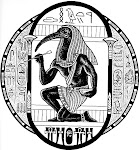
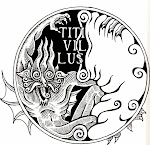
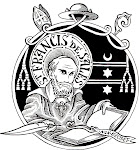
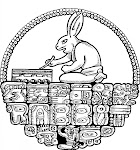
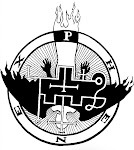
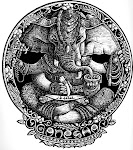

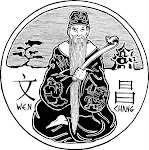
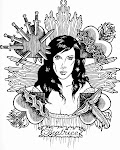
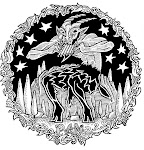
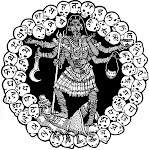
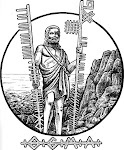
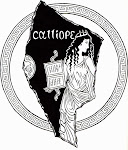
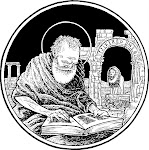
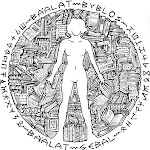

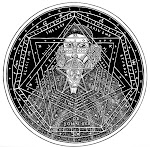

Superb! I've found my sourcebook for pushing me to the next level. Thank you Sev!
ReplyDelete